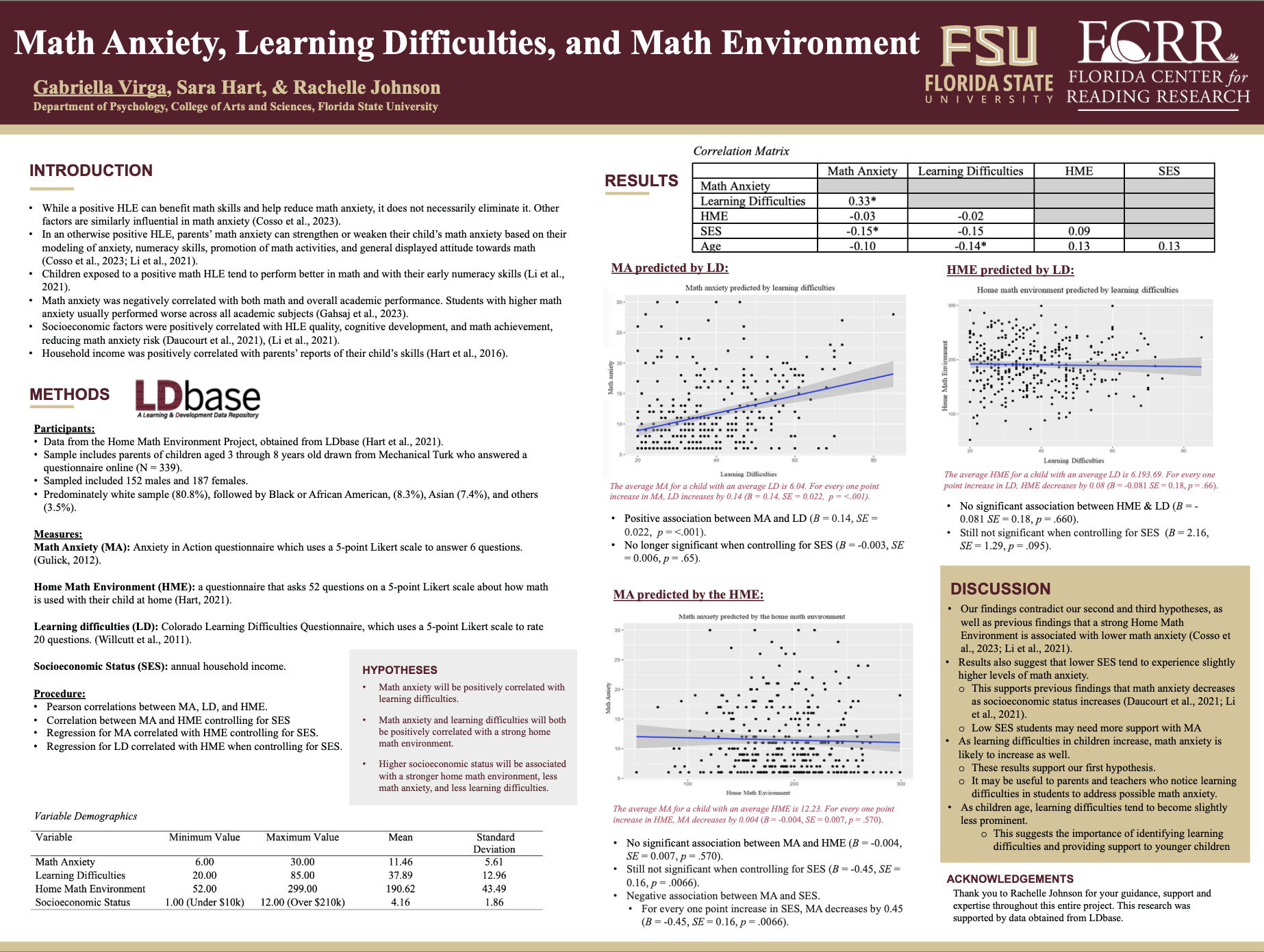Research Symposium
25th annual Undergraduate Research Symposium, April 1, 2025
Gabriella Virga Poster Session 1: 9:30 am - 10:30 am/ Poster #108
BIO
Gabriella Virga is a second-year Behavioral Neuroscience student from Fanwood, New Jersey. This is her fourth semester as a DIS student in the Florida Center for Reading Research on the National Project for Achievement in Twins. She enjoys researching mental disorders and their impacts on behavior. She is a pre-medical student who aspires to be a psychiatrist in the future.
Math Anxiety, Learning Difficulties, and the Home Math Environment
Authors: Gabriella Virga, Rachelle JohnsonStudent Major: Behavioral Neuroscience
Mentor: Rachelle Johnson
Mentor's Department: Department of Psychology Mentor's College: College of Arts and Sciences Co-Presenters:
Abstract
Math anxiety (MA), learning difficulties (LD), and the home math environment (HME) are key factors in academic performance. Prior research suggests that the HME can positively or negatively influence children’s MA, but more investigation is necessary (Cosso et al., 2023). Additionally, it is unclear how LD impact students’ math anxiety, especially in relation to the HME. Research also demonstrates an association between household income and children's demonstration of math skills (Hart et al., 2016). This study’s overarching research question examines the associations among MA, LD, and HME, and the role of socioeconomic status (SES) in these associations.
Using data from the Home Math Environment Project (Hart et al., 2021), we analyzed a sample of 339 parents of children aged three to eight years old. MA was measured using the Anxiety in Action Questionnaire (Gulkik, 2012). LD was assessed using the Colorado Learning Difficulties Questionnaire (Willcutt et al., 2011). HME was measured using a 52-item parent-reported Likert scale (Hart, 2021). Pearson correlations were conducted to examine associations between MA, LD, and HME. Next, we ran regressions to explain the associations between MA and HME, as well as LD and HME, both before and after controlling for SES. We hypothesized that MA would be positively correlated with LD, that MA would be negatively correlated with HME, and that higher SES would be associated with a stronger HME and lower MA and LD. This research will help inform better in-school and at-home support to students struggling with math anxiety and learning difficulties.
Keywords: Math Anxiety, Home Environment, Learning


